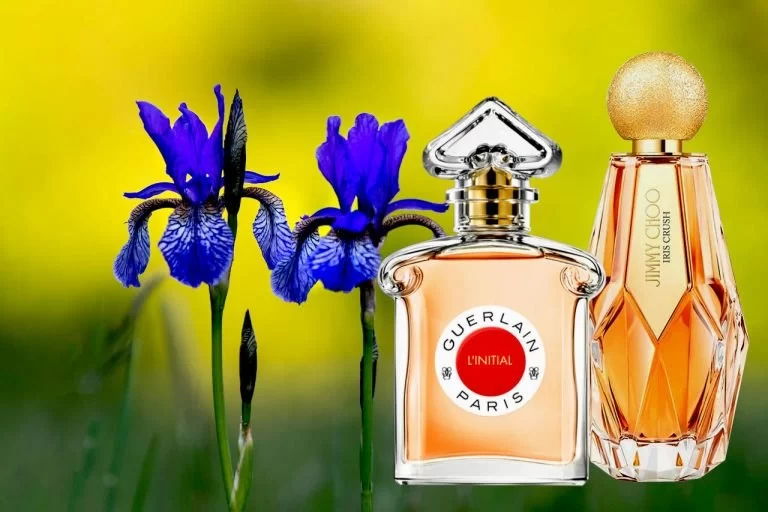- understanding-iris-in-perfumery
- the-character-of-iris-fragrance-notes
- how-iris-smells-in-different-perfume-compositions
- historical-and-cultural-significance-of-iris
- real-examples-of-iris-based-perfumes
- why-iris-remains-a-favorite-among-fragrance-lovers
- explore-iris-fragrances-with-scent-snob
1. Understanding Iris in Perfumery
When people ask, “what does iris smell like in perfume,” the answer is far more complex than a single description. Iris isn’t a fresh flower note like rose or jasmine—it comes from the rhizome, or root, of the iris plant. Known as orris root, it takes years of drying and processing before it reveals its iconic scent. This transformation gives iris a depth that makes it one of the most prized ingredients in luxury perfumery. Its rarity and lengthy preparation process also explain why iris is often found in high-end fragrances.
2. The Character of Iris Fragrance Notes
The true beauty of iris lies in its complexity. In perfumes, iris is often described as powdery, soft, and slightly woody, with a touch of earthiness. Some people detect buttery or even chocolate-like undertones. Unlike bright florals, iris has a subtle elegance that feels sophisticated and timeless. This makes it ideal for both men’s and women’s fragrances, adding a velvety texture that lingers gently on the skin. When blended skillfully, iris can anchor a perfume with quiet strength rather than overwhelming sweetness.
3. How Iris Smells in Different Perfume Compositions
What does iris smell like in perfume depends heavily on the blend. In floral compositions, iris enhances the bouquet with powdery softness, balancing brighter notes like violet or rose. In woody or oriental fragrances, iris adds depth and elegance, softening spices and resins with its creamy quality. Even in fresh perfumes, iris provides a grounding effect, making citrus or green notes feel more refined. This versatility is why iris remains a staple in both classic and contemporary perfumery.
4. Historical and Cultural Significance of Iris
Iris has held symbolic importance for centuries, representing royalty, faith, and wisdom in different cultures. In perfumery, iris was historically reserved for the elite due to its high cost and exclusivity. French perfume houses, in particular, elevated iris to iconic status, using it in some of their most prestigious creations. Its connection with luxury and heritage adds another layer of allure, making perfumes featuring iris not just scents, but statements of refinement.
5. Real Examples of Iris-Based Perfumes
Consider Dior Homme, which uses iris to create a powdery yet masculine fragrance, or Prada Infusion d’Iris, beloved for its modern and airy take on the note. These perfumes highlight the versatility of iris across genders and styles. Fragrance lovers often describe these scents as comforting, elegant, and long-lasting. By looking at such examples, it’s easier to understand why iris is considered a “quiet luxury” in the perfume world.
6. Why Iris Remains a Favorite Among Fragrance Lovers
For many perfume enthusiasts, iris represents understated sophistication. Unlike bold florals, it doesn’t shout for attention; instead, it whispers refinement. This makes it perfect for everyday wear while still offering the richness of a special occasion scent. Its versatility, paired with its unique powdery character, explains why iris consistently ranks among the most beloved notes in perfumery. Asking “what does iris smell like in perfume” is really about understanding why this note has captured the hearts of fragrance connoisseurs worldwide.
7. Explore Iris Fragrances with Scent Snob
At Scent Snob, we celebrate the artistry of fragrance. If you’ve ever wondered what iris smells like in perfume and want to explore it firsthand, our curated selection of perfumes and essential oils can guide your journey. Whether you prefer the powdery elegance of traditional iris scents or modern interpretations that highlight its woody or creamy side, we provide access to products and insights that elevate your fragrance experience. Iris isn’t just a note—it’s an emotion, and we’re here to help you discover it.


0 comments